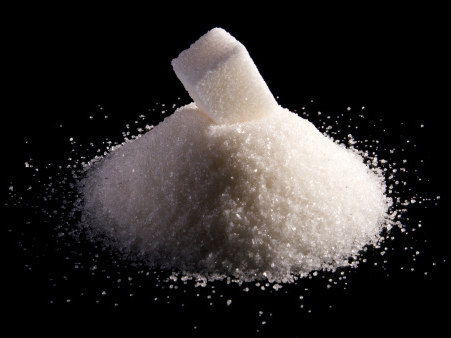

I have been telling my readers for years about the dangers of consuming sugar and carbohydrates and their direct correlation to obesity, pushing against the propaganda that obesity was a result of a sedentary lifestyle. Last week the British Journal of Sports Medicine (BJSM) published an editorial by three cardiologists finally agreeing with my reporting on this issue.
The editorial, “It’s time to bust the myth of physical inactivity and obesity: you (sic) cannot outrun a bad diet,” puts the blame for the obesity epidemic right where it belongs—poor diet. Specifically, sugar and carbohydrate consumption.
Conventional wisdom has for years held that obesity was related to a lack of exercise. That meme was promoted by Big Food, particularly the cola industry. It has spent billions of dollars to push sugary drinks on an unsuspecting public with its marketing campaigns centered on popular sports figures and teams.
From the BJSM:
[M]embers of the public are drowned by an unhelpful message about maintaining a ‘healthy weight’ through calorie counting, and many still wrongly believe that obesity is entirely due to lack of exercise. This false perception is rooted in the Food Industry’s Public Relations machinery, which uses tactics chillingly similar to those of big tobacco. The tobacco industry successfully stalled government intervention for 50 years starting from when the first links between smoking and lung cancer were published. This sabotage was achieved using a ‘corporate playbook’ of denial, doubt, confusing the public and even buying the loyalty of bent scientists, at the cost of millions of lives.
The cardiologists cite several studies, including those showing there has been little change in the physical activities of Western societies in the past 30 years, and what change there has been was toward increased activity levels.
Therefore, they deduce:
[T]his places the blame for our expanding waist lines directly on the type and amount of calories consumed. However, the obesity epidemic represents only the tip of a much larger iceberg of the adverse health consequences of poor diet. According to the Lancet global burden of disease reports, poor diet now generates more disease than physical inactivity, alcohol and smoking combined. Up to 40% of those with a normal body mass index will harbor metabolic abnormalities typically associated with obesity, which include hypertension, dyslipidaemia, non-alcoholic fatty liver disease and cardiovascular disease. However, this is little appreciated by scientists, doctors, media writers and policymakers, despite the extensive scientific literature on the vulnerability of all ages and all sizes to lifestyle-related diseases.
Here’s the gist of what I told readers of The Bob Livingston Letter (www.boblivingstonletter.com, subscription required) back in January 2007, and Personal Liberty readers in May 2009. Sugar consumption causes excess insulin. Excess insulin builds up as fat. When insulin is disrupted with a diet of sugar and carbohydrates (which convert to sugar during digestion) there is a miscommunication in the body about where to store excess fat.
Some fat will be stored in the abdomen and liver, which throws the liver function off-kilter and starts a process of breakdown of muscle and bone—causing weakness and osteoporosis. Now we have a serious problem of insulin resistance and high blood pressure, heart disease and cancer.
When we see the big apple-shaped middle we are looking at insulin resistance and disease.
When insulin levels become high our bodies become sugar burners, not fat burners. No amount of exercise will take off fat while we are consuming excess sugar. Low insulin stops our bodies from burning sugar and switches us to burning fat. We can forget weight loss as long as we are burning sugar and not fat, no matter which plan we are on.
Bottom line is, don’t eat sugar and refined carbohydrates. This is difficult because the food processors have us all addicted. There just isn’t much left that doesn’t have high fructose corn syrup in it. We have to read every label.
Now every time we see an overweight person, we know that there goes a sugar burner for fuel.
High blood sugar levels are a hallmark of aging and disease. The reverse of this is to say that low blood sugar and low insulin is a hallmark of health and longevity.
This is not to discount the benefits of exercise. Regular exercise is vitally important, especially for seniors. But exercise will not lead to weight loss until you cut way back on sugars and carbohydrates.
